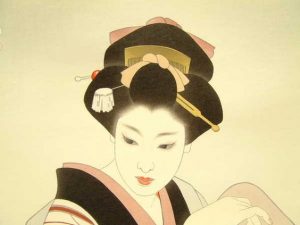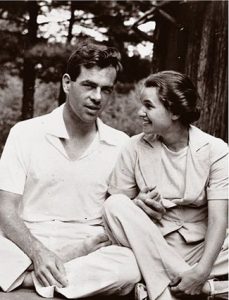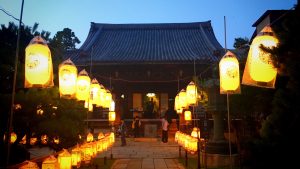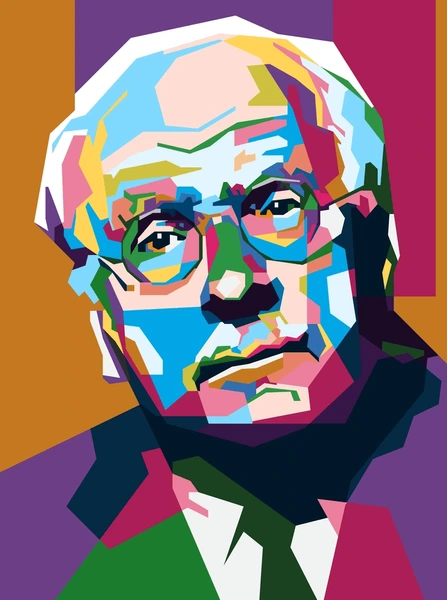This Mindfunda Book review is written by Misa Tsuruta, Ph.D.I have asked Misa, a Japanese psychologist,to write this review as she is very familiar with Western ways of thinking.Joseph Campbell, a Western man, was very familiar with the Eastern way of thinking. Usually we associate Campbell with the hero myth, but he was very aware of the differences in mythological world perspective between East and West. As a native Japanese inhabitant, Misa provides us with a unique perspective on Campbell's book. Susanne van Doorn MSc, founder of Mindfunda.com
Campbell: Asian Journals, India and Japan
Joseph Campbell, renowned for his mythological works, did not have a chance to visit any part of Asia until his 40s, despite his strong, continuing interests in and attraction to Asian religions and cultures. Culture is a hard substance to grasp, whether it is an attempt by the insider (native) or by the outsider (foreigner).
Asian Journals: India and Japan is an edited version of his travel logs. It was in 1954 that he finally embarked on this journey around the world. Before, between and after his main destinations India and Japan, he also spent short time in the Middle East, South East Asia, Hawaii and California.

Like any journey you are exposed to new cultures his was not entirely an easy one either; although he had previously idealized Indian culture through its religions and spirituality, he was so disillusioned with its anti-Americanism and “Baksheesh complex” as he called it that he sustained some sort of mental injuries for a while – until somehow they were cured in Japan.
Campbell’s Journey to Mythology
As a Japanese, I can be complimented by his implying that Japanese culture had such curative power – but to me it appears that one reason was that he finally finished working on Zimmer’s work that he grappled on for a good dozen of years. Heinrich Zimmer was the scholar who influenced him most. In short, he was freer in Japan. His observation was that Japan was more open to westernization and that ancient Asian cultures were somehow better-preserved in this country. He was rejoiced with both.
While in Japan he played with geisha, attended numerous theatrical performances (Noh, Kabuki, Bunraku, Takarazuka, among others), visited famous temples and shrines, met friends, scholars, and priests, and fiercely studied the Japanese language.

Perhaps thanks to his wife Jean Erdman, dancer/choreographer/professor, he had a deep perception of theatrical works. Jean shared parts of his travel.

In this volume you can encounter Campbell as a prolific writer/scholar and experience how he generated his ideas and organized them. While reading you will discover many seeds for his later works.
In fact, it was through this indispensable journey that he was able to transform from a professor in comparative religion to a mythologist.
Campbell and Manto-e
One of the culminations of this journey was the visit to Todai-ji Temple in Nara, renowned for its Great Buddha of 54-foot height (Daibutsu). Luckily he hit the very date of Manto-e, or Ten Thousand Lights Festival.

Photo copyright by https://imgur.com/user/zazuzazu001
Then a centennial event, according to Campbell, this festival takes place every year in our time, but not in April when he attended but in August. I could imagine how otherworldly awe-inspiring the Great Buddha was among numerous quivering lights.
It is these unforgetable moments that make people long for coming back to the same place, or leaving for another travel… He also joined Aoi-matsuri (Aoi Festival) in Kyoto and even engaged in a fire-walking on the occasion of Shinran’s (the founder of Shinshu sect) birthday celebration.
Campbell: Asian Journals conclusion
Like many Japanese I like to hear what foreigners think of our culture and country. In that sense I was very satisfied with his voice from some 60 years ago.
But the world he depicted was a bit foreign to me as well – the travel from Tokyo to Kyoto which takes less than 3 hours now took him some 7 hours and 20 minutes (before the advent of our bullet train Shinkansen), and he strolled in towns where streetcars were running (this method of transportation disappeared around the time I was born).
Magically cultures and traditions survive even though they somewhat change, and I am thankful that this great man of culture and spirituality had a chance or two to visit my country.
Our Current Courses (Click to find out More)
Sign up for our free e-book: 10 easy ways to instantly improve your dream memory
Join me on Instagram: https://www.instagram.com/mindfunda
Follow me on Facebook: https://www.facebook.com/susanne.vandooorn


Thank you for this Susanne, and to Misa Tsuruta. It would be wonderful I think to ‘know’ a little more of Joseph Campbell’s earlier work in Japan and the influence it had on his further mythological work. As Misa Tsuruta says, the Japan of now and then is vastly different. But that it is interesting also that Campbell had the opportunity to be be steeped in the westernisation already at that time as well as in some very well-preserved ancient traditions. I can imagine that Japan has ‘curative’ powers for those who steep themselves in ancient traditions which are felt today –
‘Magically cultures and traditions survive even though they somewhat change …’ your words Misa. Thank you both for bringing this book to our attention. I am intrigued.
Thank you so much Susan, for your comment. i was so thrilled when Misa accepted my request to write this review for Mindfunda. And just like you, i have been intrigued to read it. It has certainly fed my deep felt wish to visit Japan and experience the beauty of it myself.
kind regards,
Susanne